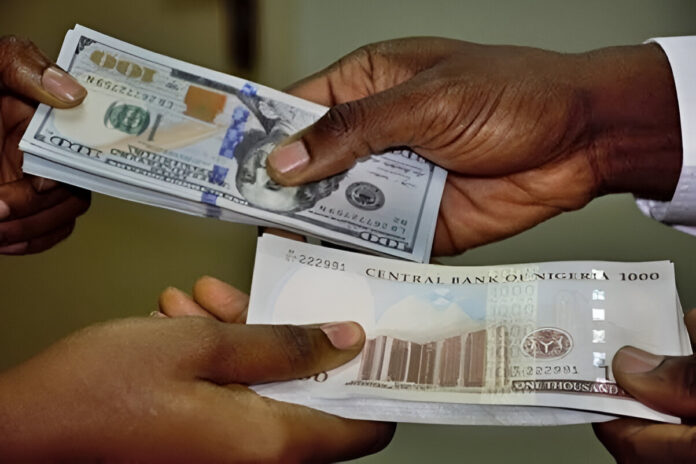Starting the week on a modest downturn, the Nigerian currency traded at ₦1,467.01 per dollar on Tuesday, against Monday’s closing rate of 1,460 naira per dollar, according to Central Bank of Nigeria (CBN) numbers.
The News Chronicle learnt that this movement comes on a short recovery last week when the naira finished at ₦1,458 per dollar on Friday its highest level since 2024, as the apex bank increased efforts to stabilize the foreign currency market and maintain investor confidence.
CBN information indicates the currency started the past week at ₦1,464 per dollar before dropping somewhat to ₦1,472 by Tuesday. Rates at the parallel market, meanwhile, ranged between ₦1,498 and ₦1,504 per dollar, indicating ongoing pressure on FX liquidity despite the consistent actions of the central bank.
Foreign Reserves Expand
From $42.5 billion reported earlier in the week, Nigeria’s foreign reserves rose gradually to $42.6 billion, keeping on an upward course from mid-July 2025. Improved crude oil revenues and greater capital inflows—variables that have increased the CBN’s capacity to protect the local currency and control speculative activities—analysts credit this growth.
Financial analysts think the improved reserve position indicates ongoing investor confidence. In its most recent prediction, Standard Bank changed its FX view, projecting the naira to close at ₦1,458.8 per dollar by the end of 2025 and ₦1,473 by December 2026. The bank said that a more solid reserve base would let the CBN control liquidity and help to guarantee market stability even during possible investor withdrawals.
The inflation forecast shows a positive pattern
Nigeria’s inflation trajectory is still good even if there are little FX changes. Improved food supplies, stable energy costs, and a strong exchange rate will all help headline inflation to slow further in September 2025, according to analysts.
According to the National Bureau of Statistics (NBS), inflation fell for a fifth straight month, going from 21.88 percent in July to 20.12 percent in August. Economists predict that September will be the sixth month of easing inflation, therefore confirming the efficacy of continuous fiscal and monetary changes meant at restoring macroeconomic stability.
Scheduled to release its September Consumer Price Index (CPI) report on Wednesday, the NBS may further confirm the results of Nigeria’s economic recovery initiatives.



